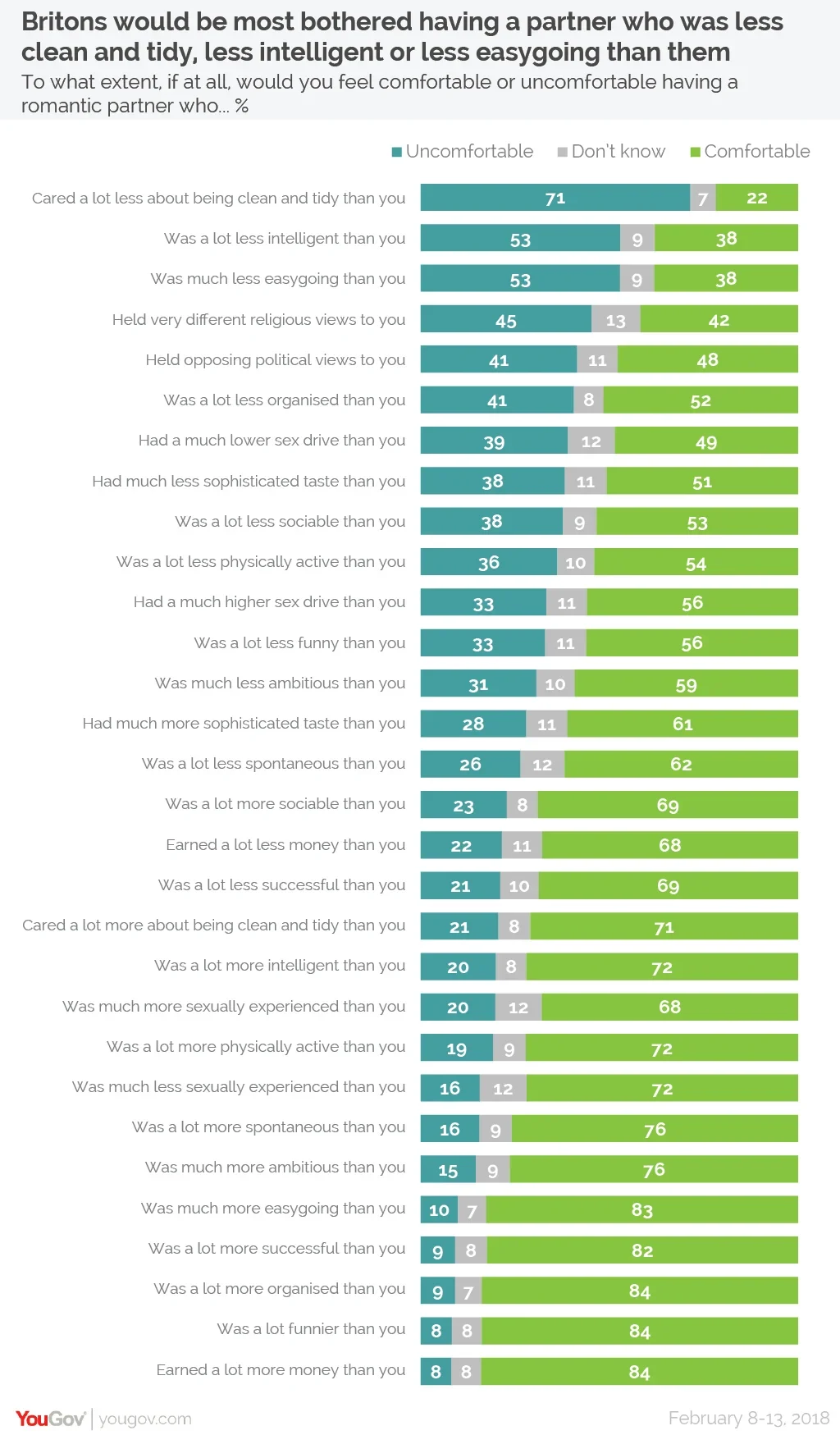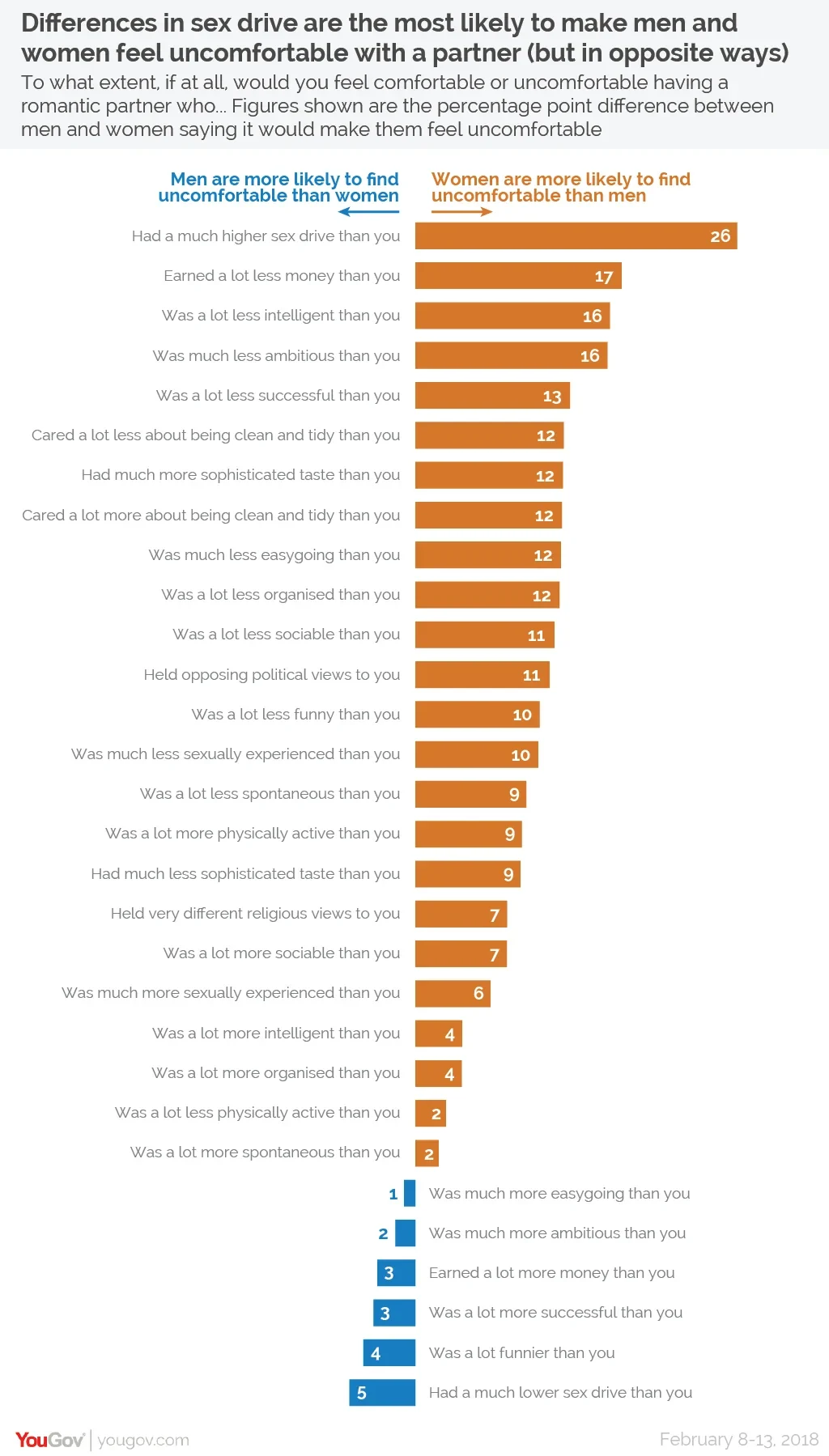Women are more likely to feel uncomfortable with most of the 30 personality mismatches we put to people
No partnership is perfect, and part of building a successful relationship entails coming to terms with the other person’s flaws.
But what partner personality mismatches would most bother Brits? New YouGov Omnibus research uncovers which ones would make Brits feel most uncomfortable.
From a list of 30 different attributes that a partner could have, the one that Brits find by far the most distressing is a lack of cleanliness. Seven in ten (71%) say that they would feel uncomfortable with a partner cared a lot less about being clean and tidy than they do. By contrast, only 21% of us would be bothered by a partner who cared more about being clean and tidy.
Disparities in intelligence and chill would also bother large numbers of people. Many Brits (53%) would be uncomfortable being with someone much less intelligent than them, although only 20% would be bothered by the opposite problem – having a partner who was much smarter than them.
Likewise, over half (53%) of the public don't want to be with someone who is much more uptight than them, saying they would be uncomfortable with a much less easygoing partner. Only 10% would mind being the straight person in their romantic duo, being bothered by the prospect of a much more relaxed partner.

Brits hardly seem anxious to be the main breadwinner in their relationship. Just 8% say that having a partner earning a lot more money than them would make them uncomfortable. It is a similar story when it comes to being with someone more successful than them (9%).
Men versus women
While men are essentially as likely as women to be bothered by higher earning or more successful partner (being only 3% more likely to say it would make them feel uncomfortable, which is well within the margin of error for such results), there are plenty of big differences between the sexes.
The largest is when it comes to sex drives. Having a partner with a much higher sex drive would bother 46% of women but only 20% of men – a difference of 26 percentage points. However, there is much less of a difference when it comes to a partner with a much lower sex drive, which bothers 42% of men and 36% of women.
Generally speaking, where differences exist it is because women are more likely to be bothered by them than men. After sex drive, women are more likely to be uncomfortable with the prospect of a partner who earns a lot less than them (30%, vs 13% of men), is much less intelligent than them (60% vs 45%) or is far less ambitious than them (38% vs 23%).

Photo: Getty









